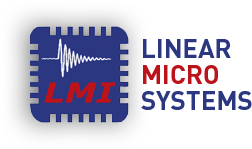Navigating the Supply Chain: Ensuring Resilience in Custom ASIC & SoC Production
The demand for custom silicon, whether in ASICs or System-on-Chip (SOC) solutions, continues to grow as industries push for innovation, efficiency, and specialized performance. Yet, the semiconductor supply chain that supports these designs is increasingly complex and vulnerable. Global disruptions, from raw material shortages to geopolitical tensions, can significantly impact timelines, costs, and delivery for microsystems companies. Building supply chain resilience is no longer optional—it’s essential for success in custom ASIC and SOC production.
Understanding Supply Chain Complexities in Custom Silicon
Unlike off-the-shelf components, custom ASICs and SOC devices rely on specialized processes, niche foundries, and tailored design flows. This makes the supply chain more vulnerable to disruption than standard semiconductor production. Key challenges include:
-
Fabrication Dependencies: Custom chips often require specific nodes or unique fabrication capabilities, limiting the number of qualified foundries.
-
Global Distribution: Critical materials, from rare earth metals to silicon wafers, are sourced worldwide, making the supply chain susceptible to geopolitical issues.
-
Lead Time Volatility: Even minor delays at one stage of design, packaging, or testing can ripple through the entire production process.
-
IP and Security Risks: Working with multiple suppliers across regions can expose vulnerabilities in intellectual property handling and design integrity.
For microsystems companies focused on advanced ASIC and SOC development, these factors create a heightened need for strategic supply chain management.
Strategies for Risk Mitigation and Continuity
Despite these complexities, companies can take proactive steps to strengthen resilience in custom silicon production. Some best practices include:
-
Supplier Diversification: Relying on a single foundry or material source introduces unnecessary risk. By cultivating multiple vendor relationships, companies reduce exposure to disruptions.
-
Geographic Flexibility: Balancing suppliers across regions helps offset the impact of localized issues, whether political, environmental, or logistical.
-
Long-Term Partnerships: Building trust with foundries, testing facilities, and packaging partners ensures greater visibility and priority access during shortages.
-
Inventory and Buffer Planning: Strategic stockpiling of critical components or wafers can safeguard against unexpected delays.
-
End-to-End Visibility: Leveraging digital supply chain tools provides real-time insights into production status, shipment tracking, and potential vulnerabilities.
-
Robust Security Practices: Protecting IP requires secure data exchange protocols, strong contracts, and vetting of all supply chain partners.
By combining these approaches, microsystems companies can establish continuity even when faced with unpredictable challenges.
Building a Resilient Future for Microsystems
The semiconductor industry has always been global, interconnected, and subject to rapid change. For companies designing custom ASIC and SOC devices, resilience in the supply chain is not just about mitigating risks—it’s about enabling long-term innovation. A robust supply chain ensures that critical products reach customers on time, even in uncertain environments, while also protecting investments in design and development.
Microsystems companies that prioritize supplier diversification, security, and proactive planning will be best positioned to deliver cutting-edge SOC and ASIC solutions despite global headwinds. In today’s competitive landscape, supply chain resilience is more than a safeguard—it’s a strategic advantage.
Learn more from Linear MicroSystems today!
Linear MicroSystems, Inc. is proud to offer its services worldwide as well as the surrounding areas and cities around our Headquarters in Irvine, CA: Mission Viejo, Laguna Niguel, Huntington Beach, Santa Ana, Fountain Valley, Anaheim, Orange County, Fullerton, and Los Angeles.






